
Once upon a time, during a period of great technological innovation but also great economic inequality, journalism was striving to define its role in a fractious democracy. Divisions between conservatives and progressives were stark—and angry—and social anxiety about racial injustice and the rise of women was acute. The behemoth size of some corporations stirred alarm. So did the plight of workers with few protections. At the helm of the government was a president with a bully pulpit, ready to upend things. It was one of those rare moments, in the words of the historian Doris Kearns Goodwin, of “transformation so remarkable that a molt seems to take place, and an altered country begins to emerge.”
If that sounds familiar and ominous, take heart. I’m describing the turn of the 20th century, a time when those striving journalists were defining the bedrock reporting principles we now take for granted— developing their field on the fly, and triumphantly. In the process, they confirmed what a potent force their vocation could be. To revisit investigative journalism being born and magazines thriving more than 100 years ago is to be reminded that dizzying change in technology and the media—the refrain of our digital era—is by no means unique to our moment. Nor is it the whole story. The standards, methods, and collaborative ambitions that fueled the 20th-century journalistic upsurge don’t look quaint at all: They remain as crucial as ever in the effort to hold power accountable.
This story is from the {{IssueName}} edition of {{MagazineName}}.
Start your 7-day Magzter GOLD free trial to access thousands of curated premium stories, and 9,000+ magazines and newspapers.
Already a subscriber ? Sign In
This story is from the {{IssueName}} edition of {{MagazineName}}.
Start your 7-day Magzter GOLD free trial to access thousands of curated premium stories, and 9,000+ magazines and newspapers.
Already a subscriber? Sign In

A Brief History of Yuval Noah Harari - How the scholar became Silicon Valley's favorite guru
"About 14 billion years ago, matter, energy, time and space came into being." So begins Sapiens: A Brief History of Humankind (2011), by the Israeli historian Yuval Noah Harari, and so began one of the 21st century's most astonishing academic careers. Sapiens has sold more than 25 million copies in various languages. Since then, Harari has published several other books, which have also sold millions. He now employs some 15 people to organize his affairs and promote his ideas.

Boat Fish Don't Count
The wild, obsessive, dangerous pursuit of Montauk's biggest striped bass
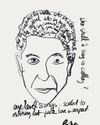
The Anti-Rock Star
Leonard Cohen's battle against shameless male egoism

Rachel Kushner's Surprising Swerve
She and her narrators have always relied on swagger-but not this time.
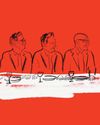
Men on Trips Eating Food
Why TV is full of late-career Hollywood guys at restaurants
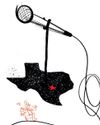
You Think You're So Heterodox
Joe Rogan has turned Austin into a haven for manosphere influencers, just-asking-questions tech bros, and other \"free thinkers\" who happen to all think alike.

What Abortion Bans Do to Doctors
In Idaho and other states, draconian laws are forcing physicians to ignore their training and put patients' lives at risk.
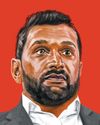
THE LOYALIST KASH PATEL WILL DO EXACTLY WHAT TRUMP WANTS.
A 40-year-old lawyer with little government experience, he joined the administration in 2019 and rose rapidly. Each new title set off new alarms.

THE RADICAL CONVERSION OF MIKE LEE
IN 2016, HE TRIED TO STOP TRUMP FROM BECOMING PRESIDENT. BY 2020, HE WAS TRYING TO HELP TRUMP OVERTURN THE ELECTION. NOW HE COULD BECOME TRUMP'S ATTORNEY GENERAL.
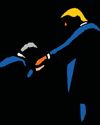
HYPOCRISY, SPINELESSNESS, AND THE TRIUMPH OF DONALD TRUMP
He said Republican politicians would be easy to break. He was right.